Bihar Elections: Gaya’s Powerloom Industry Plunges into Gloom Courtesy Govt. Neglect
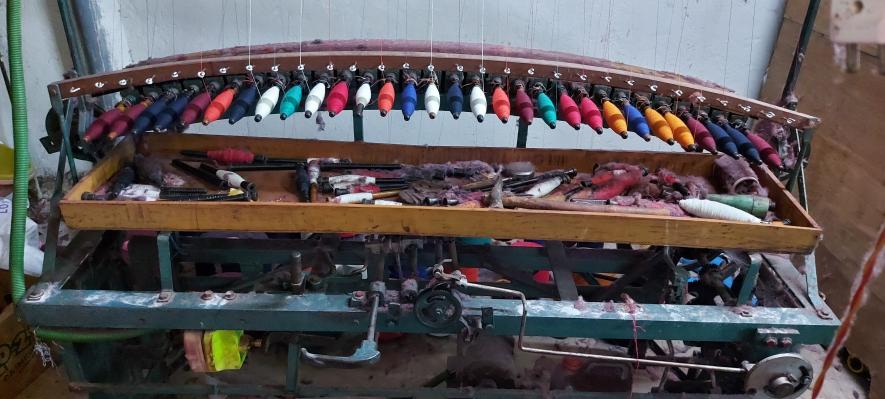
Gaya: While the rest of Bihar is gearing up to to elect a new government, the weavers community in Gaya district are confronted with multiple issues which have led to dwindling businesses and made earning a livelihood difficult.
Despite suffering from problems like high prices of yarn, high power tariffs, inadequate supply of dyes in the local market, and the like, the looms at Patwatoli in southern Bihar were somehow functional. However, the nationwide lockdown to check COVID-19 has given the informal industry a big jolt.
Because of the closure of market, consignments sent are stuck in shops and so are payments.
Popularly known as the ‘Manchester of Bihar’, roughly 5,000-odd households in Patwatoli own 1,000 units and 12,500 power looms. The livelihood of between 35,000 and 40,000 people, who also include those who are involved in bleaching, dyeing, transporting and trading, depends on this cottage industry. A large section of those indirectly associated with this sector lost their jobs as a result of the lockdown.
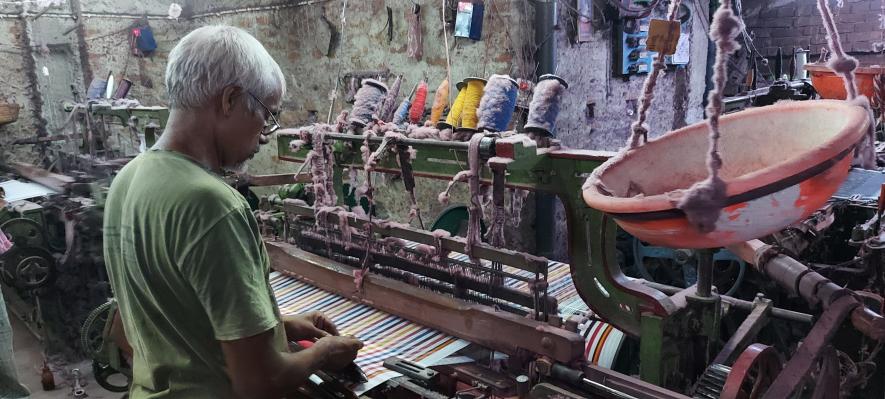
Prem Narayan Patwa, head of the Vastra Udyog Bunkar Sabha Samiti, said the power loom industry in Patwatoli was set up in 1957 when the then government in the state had given a few machines to the weavers here. “Initially, people were reluctant to install the machines, fearing it will damage their kachcha houses. After a sustained awareness campaign launched by the government, the machines were installed and production began. As it was a resounding success, people poured in. Over a period of time, Patwatoli emerged as a hub of the power loom industry,” he told NewsClick.
However, he said the industry does not get any assistance from governments under schemes meant for the promotion and development of Micro, Small & Medium Enterprises. “We get no subsidy from the governments, except subsidised electricity — which is charged at the rate of Rs three per unit. The state government schemes for promotion of the cottage industry are a sham and are present only on paper,” he alleged.
“If you go for any assistance to the government, you will have to face cumbersome procedures which take a lot of time and effort. If everything goes well, you will have to bribe officials to get the final stamp. Therefore, we borrow funds directly from banks by mortgaging properties instead of applying to the government for financial assistance,” he said.
He said since the industry does not get any loan waivers, few could pay back the borrowed sum on time. “Their business collapsed, houses were seized by the banks, and they are facing legal proceedings. They are bankrupt now,” he added.
Explaining the process of procurement of raw materials and selling of products, he said: “The raw material – mainly yarn – comes from Ludhiana in Punjab, Haryana and Tamil Nadu. West Bengal is our biggest market where we sell 75% of our production. Assam is the second largest market where we send 15% of our total consignment. The rest is sold in Bihar, Jharkhand and Uttar Pradesh.”
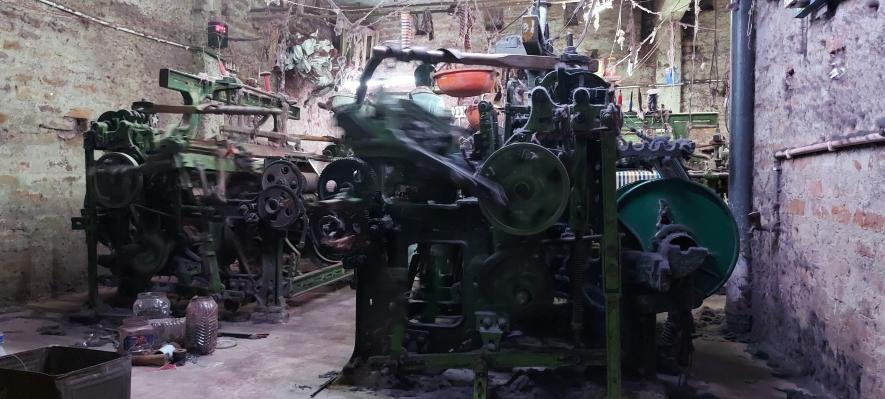
“The consignments, which were sent to these states, were stuck midway. Since the market was closed, the majority remained piled up in shops. As a result, we did not get scheduled payments because of which we are facing a severe financial crunch,” he concluded.
Another power loom owner said the banks don’t give loans to small industrialists. “I have have a small power loom with seven machines. Because of small capital investment, we don’t get loans from banks easily. Our production size is not as big that we send it outside. We sell the products for less profit to local traders, who do business on credit as well,” he said.
Earlier, Patwatoli used to produce cotton saris and bed-sheets in addition to gamchas (neck scarves). However, the manufacturers here mainly produce gamchas only. “As designer silk saris took over the market, the demand for cotton ones witnessed a sharp decline. Similarly, there are no takers for bed-sheets produced by us. They are produced only if one gets an order from the government for hospitals,” he said.
Phaldhari Prasad, who has also been involved in the power loom sector for generations, said he industry had been declining with each passing day because of the government’s neglect.
“A textile park had been proposed years ago. We don’t have a place to exhibit of our products. The industry needs technical upgrades for high-quality products with better finishing. Had there been a textile park or an industrial area here, we would have set up new plants with modern machines. As of now, we we fail to compete with manufacturers from developed states. As a result, we are unable to sell our products across the country. We urge the government to give us land by declaring the area an industrial estate or set up a textile park. Otherwise, we won’t be able to survive for long,” he added.
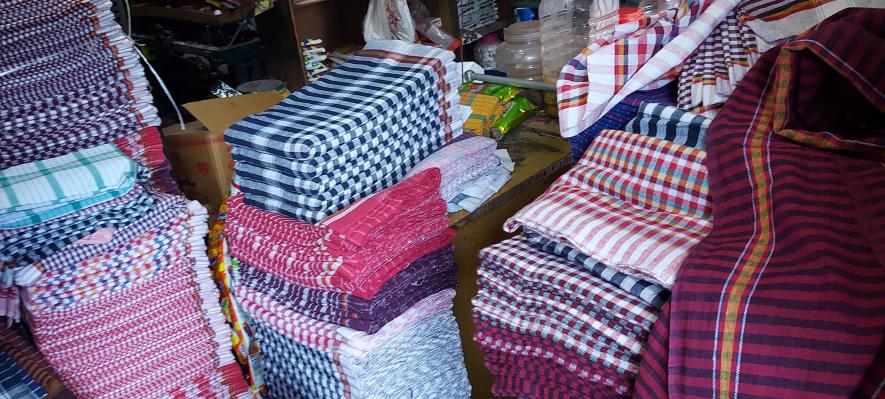
He said the government had placed an order of bed-sheets for hospitals, but that they are still lying with the manufacturers.
Naval Kishor Prasad, who belongs to the Patwa community, said Bihar did not grow the number of power loom units as compared to Uttar Pradesh. “We have around 12,500 power looms, which is nothing compared to Uttar Pradesh which has over 70,000 machines between Tanda and Mau. We don’t have a dearth of marketplaces, we are surviving because we have markets and are improving the quality of our products as much as we can given the limited resources,” he told NewsClick.
“Instead of providing us assistance the government is creating trouble. We keep getting notices from the Pollution Control Department,” he alleged. “The area is extremely congested. There will be noise everywhere when machines are operational. Where will we go if the government does not develop a textile market or an industrial estate? The narrow by-lanes also create great difficulty in transportation of raw materials and finished products,” he added.
Patwatoli falls in the Wazirganj Assembly constituency, which is represented by Congress leader Awadhesh Kumar Singh. His son, Dr. Shashi Shekhar Singh, a Congress candidate, is taking on BJP’s Virender Singh.
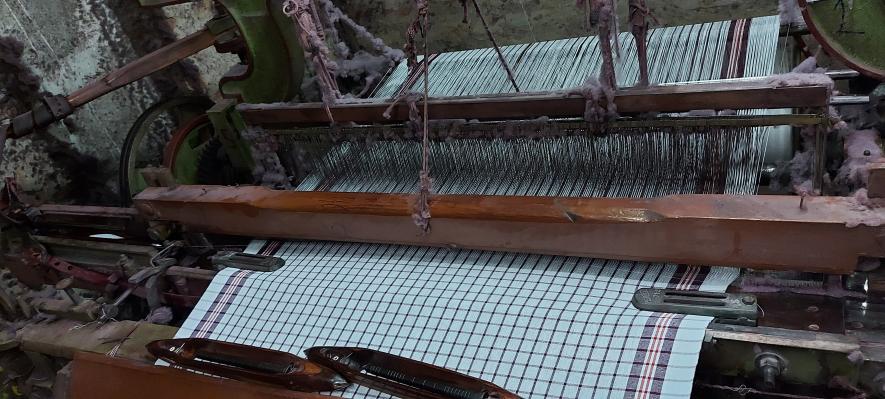
When asked about the problems faced by the weavers, Awadhesh Singh said it was the Congress government which encouraged and helped people to leave hand looms and establish power looms by giving them machines and subsidies. “The last 15 years was a tough phase for the industry because the NDA government did nothing. Several weavers became bankrupt because the government did not waive off their loans which they were unable to pay. Years later a textile park was proposed. Only land for it has been identified thus far, and that too due to continued struggle,” he added.
The BJP candidate could not be reached for a comment on the weavers’ allegations. Gaya District Magistrate Abhishek Singh refused to comment, citing the model code of conduct
Get the latest reports & analysis with people's perspective on Protests, movements & deep analytical videos, discussions of the current affairs in your Telegram app. Subscribe to NewsClick's Telegram channel & get Real-Time updates on stories, as they get published on our website.























